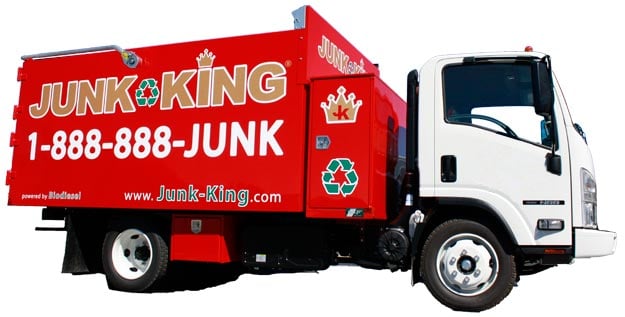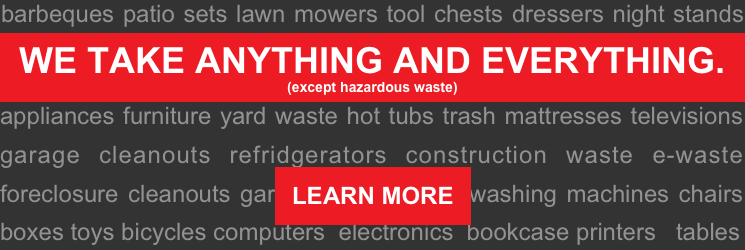
[This article was first published in May 2019 and has been updated and expanded.]
Maintaining data security is a concern shared by many who are looking to dispose of e-waste safely.
With so many advertising these services, it can be challenging for consumers to sift through them all and identify those that are both safe for the environment AND safe for your data.
Safely Disposing of E-Waste
A Comprehensive Guide to Protecting Data and the Environment
As the world continues to embrace new technologies, the problem of electronic waste, or e-waste, has become a pressing concern. Properly recycling e-waste is essential not only for environmental sustainability but also for safeguarding sensitive data that may be stored in old devices.
However, with numerous companies offering recycling services, consumers face the challenge of identifying those that prioritize both environmental safety and data security. This article aims to provide an updated and comprehensive guide on safely disposing of e-waste, considering various factors that should be taken into account when choosing a recycling method and provider.
Understanding the True Cost of Recycling E-Waste
Recycling e-waste is not a free service. The process of disassembling electronic devices and safely handling their hazardous components requires significant time and effort. While some businesses may offer free e-waste pickup or even pay consumers to recycle their old devices, it's crucial to question how they sustain their operations.
In many cases, such companies might rely on alternative revenue streams, such as selling customer data or engaging in unethical practices. To ensure data privacy, it is essential to choose a recycling provider that transparently communicates their business model and doesn't compromise on data security.
Time-Consuming Recycling Processes and Data Security
Environmental claims made by some recycling companies can be deceptive, especially when they fail to disclose their processes entirely. Some unscrupulous companies ship discarded devices overseas, where workers in struggling economies dismantle the devices under unsafe conditions.
This not only poses risks to the workers' health and the local environment but also creates opportunities for data theft. To safeguard sensitive information, consumers should opt for reputable recycling providers with clear and ethical practices, prioritizing both environmental responsibility and data security.
State Laws and Responsible Disposal
To address the hazardous nature of electronic components, many states have implemented e-waste recycling programs. These laws vary from state to state, making it challenging for consumers to understand their responsibilities when disposing of electronic devices.
For example, California prohibits the disposal of cathode ray tubes in landfills due to their hazardous properties. Being aware of state regulations ensures that individuals comply with the law and choose environmentally responsible recycling options.
Data Vulnerability: Donating to Charities and Gifting Devices
While donating old devices to charities can be an altruistic way to recycle e-waste, it comes with potential data security risks. Charities may use donated computers within their organization or refurbish and resell them to fund their initiatives.
Consumers should inquire about the charity's data handling practices and choose reputable organizations to minimize the chances of data exposure.
Similarly, giving old devices to friends and family is a common method of recycling. However, relinquishing control of the device means losing control over data access. Even when passing devices on to children, parents should take precautions to wipe data thoroughly to prevent unauthorized access in the future.
Laptop Disposal Done the Right Way
Properly preparing a laptop for disposal is crucial to safeguard personal data and ensure responsible recycling. Follow these essential steps to prepare your laptop for disposal:
- Back Up Important Data: Before starting the disposal process, back up all your important files and data to an external hard drive, cloud storage, or another device. This ensures that you don't lose valuable information during the disposal process.
- Perform a Factory Reset: Once your data is backed up, perform a factory reset or complete wipe of the laptop's hard drive. This will erase all personal information, files, and applications from the device, restoring it to its original factory settings.
- Remove External Accessories: Detach any external accessories such as chargers, peripherals, or memory cards from the laptop. These accessories can be reused or recycled separately.
- Securely Erase Storage: To further protect your data, use specialized data erasure software to securely wipe the hard drive. This process ensures that data cannot be recovered by unauthorized parties.
- Remove Personal Identifiers: If your laptop has a removable hard drive, consider removing it before disposal. This prevents any chance of data retrieval and allows you to repurpose or recycle the hard drive separately.
- Check for Recycling Programs: Look for certified e-waste recycling programs or drop-off locations in your area. Many electronics manufacturers and retailers offer recycling services for old laptops, ensuring proper disposal and environmental responsibility.
- Donate or Trade-In: If your laptop is still in working condition and you no longer need it, consider donating it to a charitable organization or participating in a trade-in program. This allows someone else to benefit from your laptop while reducing electronic waste.
By following these steps, you can responsibly dispose of your laptop, protect your data from potential breaches, and contribute to a more sustainable approach to e-waste management.
Responsibly disposing of e-waste is essential to protect both the environment and personal data. Consumers must be diligent when selecting recycling providers, ensuring they prioritize both aspects of data security and environmental sustainability.
By staying informed about state laws and the practices of charitable organizations, individuals can make informed decisions when recycling their electronic devices. Taking proactive steps to protect data during disposal will contribute to a safer and more sustainable future.
Safe and Professional eWaste Removal
Junk King’s reliable e-waste removal service is an eco-friendly way to dispose of your old electronic devices. We pick up and dispose of your old electronics and devices so you don’t have to worry about whose hands they might end up in or keep track of state or local restrictions.
Our professional and insured e-waste removal team will call 15 to 30 minutes before our arrival at your home or office. Once we arrive, we’ll provide you with a free, transparent estimate with no hidden fees. We recycle, reuse, or donate up to 60% of what we pick up, so you can rest easy knowing that your items will end up in the right place.
Depending on the condition of your items, some approaches to e-waste disposal we may take can include donating working devices to charity or hauling them to a recycling facility where they can be safely dismantled, recycled, or disposed of properly.
Ready to get rid of that electronic waste? It’s as simple as 1, 2, 3.
You can make an appointment by booking online above or by calling 1.888.888.JUNK (5865).






